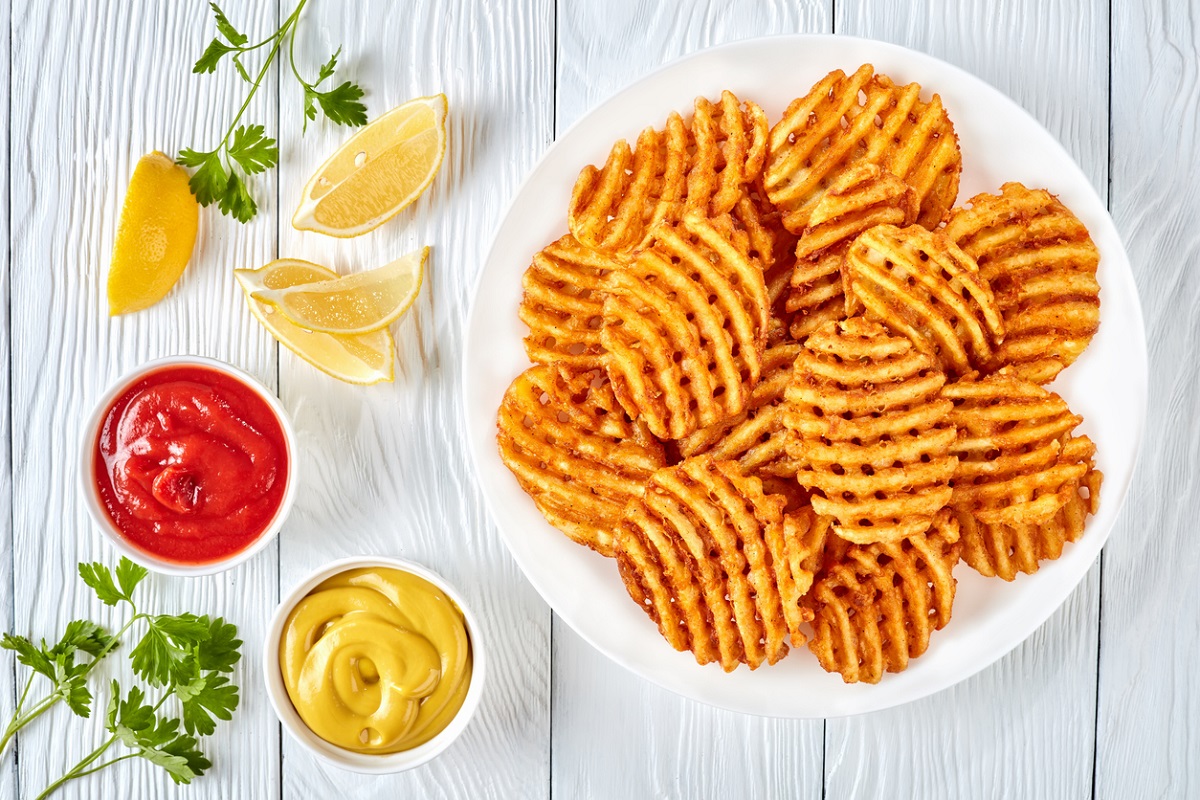
Less Browning and Lower Acrylamide Levels Achieved in Potatoes Thanks to CRISPR
January 26, 2022| |
A researcher in Australia was successful in producing gene-edited potatoes with decreased cold-induced sweetening and acrylamide formation in fried potato products, an option that may prove to be better for the economy and human health.
The more popular forms of processed potatoes are crisps and French fries. However, potatoes turn brown after frying due to the accumulation of hexose sugars. This browning can result to the rejection of the fried potatoes which contributes to food waste. On the other hand, acrylamide formation when the potatoes are deep-fried also poses health risks to consumers, as acrylamide is a potential neurotoxin/carcinogen. Through CRISPR-Cas9, potato cultivars were developed to minimize both factors.
Using Agrobacterium tumefaciens or particle bombardment for direct delivery as a ribonucleoprotein complex, Cas9 and gRNAs were delivered into plant cells as expression vectors. This resulted in 20 transgenic edited events and one transgene-free edited event, which were further narrowed down into a selection of 10 transgenic events for analysis. The gene-edited tubers were placed in cold storage and later underwent biochemical analysis, which showed that hexose sugars in tubers and acrylamide levels in crisps both decreased significantly. The findings proved that gene-edited potatoes have the potential to help reduce both food waste and lower health risks when processed as crisps and French fries.
The full study can be accessed through Murdoch University's research repository.
| |
You might also like:
- Argentine Scientists Develop Non-Browning Potatoes Using CRISPR
- Biotech-improved Golden Potatoes Contain Higher Levels of Vitamins A and E
- Study Says GM Potato Can Help Cut Pesticide Use by Up to 90%
Biotech Updates is a weekly newsletter of ISAAA, a not-for-profit organization. It is distributed for free to over 22,000 subscribers worldwide to inform them about the key developments in biosciences, especially in biotechnology. Your support will help us in our mission to feed the world with knowledge. You can help by donating as little as $10.
-
See more articles:
-
News from Around the World
- FAO Index Shows Dip in Global Food Prices
- Climate, Field Management Keys to Increased Crop Yields
- Study Shows How Environment and Genomes Interact in Plant Development
- Low Sunlight Slows Down Rubisco, Limits Photosynthetic Productivity of Crops
- Are UK Consumers Willing to Try Cultivated Meat?
- Multi-stakeholder Organizations and Farmers in EU Join Forces to Fight Climate Change
-
Research Highlights
- Scientists Prove Baby Boom Transcription Also Effective For Apples
-
Plant
- Study Shows CRISPR Works Well in Outer Space
- Are Consumers Willing to Buy CRISPR Tomatoes?
- UK Announces Simpler Rules on Gene Editing for the Benefit of Farmers
- China Drafts New Rules for Gene-edited Crops
- Less Browning and Lower Acrylamide Levels Achieved in Potatoes Thanks to CRISPR
-
Read the latest: - Biotech Updates (February 18, 2026)
- Gene Editing Supplement (January 28, 2026)
- Gene Drive Supplement (February 22, 2023)
-
Subscribe to BU: - Share
- Tweet

